Book Reviews of Sapiens a Brief History of Humankind
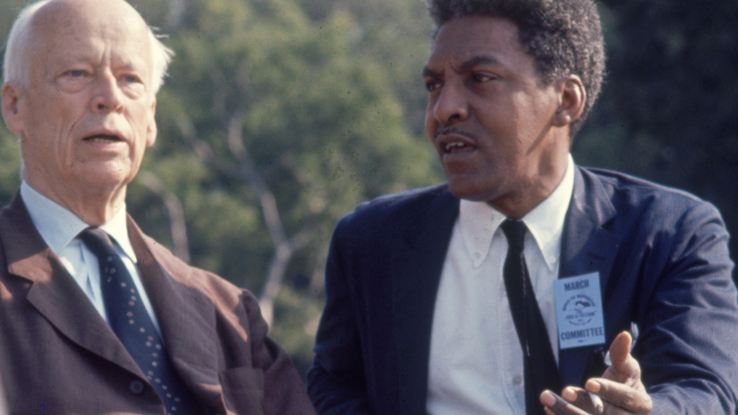
While Malcolm 10, Rosa Parks and of course Martin Luther Male monarch Jr. are all well-known leaders in America's civil rights move, the accomplishments of that era were the work of more just a few individuals. Thousands marched, organized, educated and more to build a improve social club, and equally a result, some leaders roughshod by the wayside of many of today's history books. These are but some of the amazing civil rights leaders you may have never learned nigh.
Claudette Colvin
Although Rosa Parks may exist famous for refusing to give up her seat for a white human, Claudette Colvin stood her ground nine months earlier — and at the age of 15 rather than 42. She and 3 of her friends were sitting in a row when a white adult female boarded the omnibus, and the driver demanded that all four of them move. Three did. Claudette didn't.
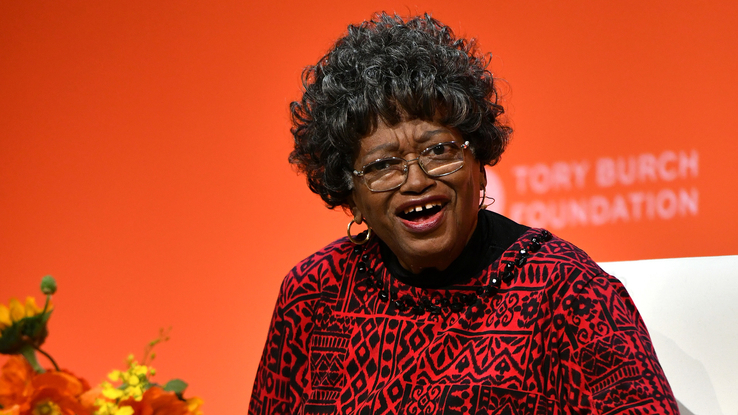
She explained that it was her constitutional right to sit there. "Information technology felt," Colvin later explained, "every bit though Harriet Tubman's hands were pushing me down on one shoulder and Sojourner Truth's hands were pushing me down on the other shoulder."
Colvin's books were knocked from her hands, and she was manhandled off the autobus and later placed in jail before being bailed out by her parents. The National Clan for the Advancement of Coloured People (NAACP) considered promoting her as a primal figure in the fight confronting segregation, just information technology ultimately chose not to considering she was a teenager. She too shortly became pregnant, which organizers feared would distract from the broader struggle.
Even so, along with Aurelia S. Browder, Susie McDonald and Mary Louise Smith, Colvin became one of four plaintiffs in the case of Browder vs. Gayle, which saw Montgomery, Alabama's bus policies thrown out every bit unconstitutional. Colvin moved to New York City ii years later and became a nurse's aide.
Bayard Rustin
While Martin Luther Male monarch Jr. was the face of the civil rights rallies of the '60s, Bayard Rustin was the man behind the scenes who organized them. Raised by his teenage female parent and Quaker grandparents, he was drawn to the Young Communists League while attending New York's Metropolis College during the 1930 because of their support for racial equality. Even so, he left when the Communist Political party shifted away from ceremonious rights work subsequently 1941. He then joined the Fellowship of Reconciliation (FOR), co-founded the Congress of Racial Equality (Core) and became an active campaigner for civil rights.
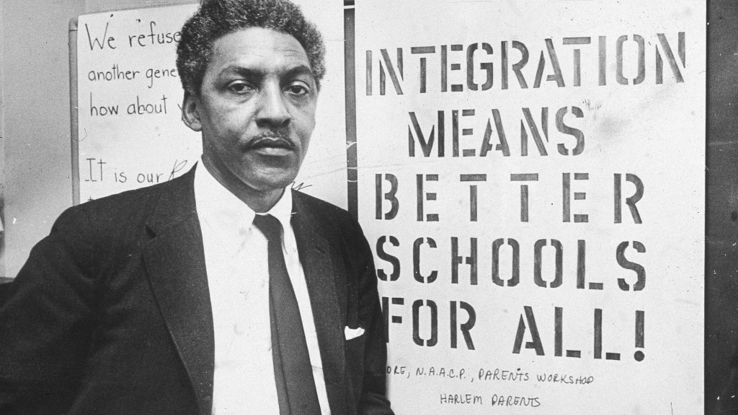
Rustin's accomplishments are almost likewise numerous to list. He participated in CORE's Journey of Reconciliation, the predecessor to the subsequently Freedom Rides that ended bussing segregation, and ended up on a chain gang as a result. He used that feel to publish several newspaper articles that led to the reform of such gangs. In 1948, he went to India to see Mahatma Gandhi's irenic practices in action, and he later on traveled to West Africa to piece of work with different colonial independence movements. He became a shut advisor to Martin Luther King and played an instrumental role in everything from 1963's March on Washington for Jobs and Liberty to helping to draft King'due south Memoir, Stride Toward Freedom.
Rustin became a target of J. Edgar Hoover and the FBI early on on because of his communist ties, and his 1953 conviction on charges of homosexual activity acquired tension even with other civil rights leaders. Nonetheless, Rustin continued his work, and in the 1980s, he finally opened upwards nigh his sexuality. He played a cardinal role in getting the NAACP to accept action against the AIDS crisis. He died in 1987.
Shirley Chisholm
Born to immigrant parents from British Guiana and Barbados, Shirley Chisholm graduated from Brooklyn College in 1946. She was an education consultant for New York City'southward daycare system and was active in the NAACP earlier representing Brooklyn in the New York's state legislature from 1964 to 1968. She then accomplished success on the national phase by winning ballot to the House of Representatives, where she remained until 1981. She was an ardent opponent of the Vietnam War and a supporter of abortion rights and the Equal Rights Amendment.
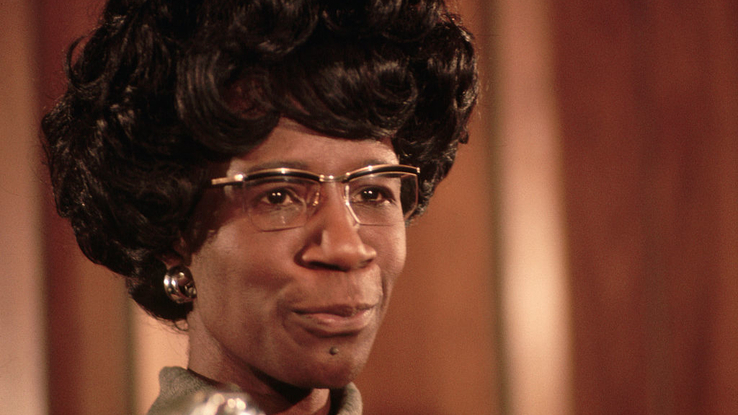
Chisholm was also both the first Black person and first woman to run for the nomination of a major party in the Us. Though she only received 152 consul votes at the 1972 Democratic National Convention, her run nevertheless foreshadowed fifty-fifty greater political accomplishments for women and people of color in the years and decades to come up.
Benjamin Mays
Martin Luther King Jr. once described Benjamin Mays as his "spiritual mentor." Born in 1894 Hezekiah and Louvenia Carter, who were onetime slaves, Mays grew upwardly to go a doctorate from the University of Chicago and was ordained as a Baptist government minister. He later became president of Morehouse College.
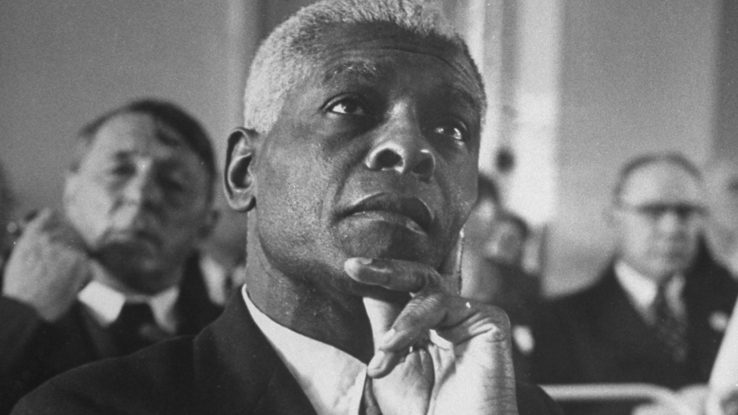
While at Morehouse, Mays delivered weekly addresses at the higher's chapel, and information technology was these speeches that first drew a young Martin Luther King Jr. to him. King began meeting with Mays to discuss theology and world affairs after the weekly addresses, and Mays began to have Lord's day dinners with the Male monarch family.
Mays went on to be one of King'due south almost prominent supporters. When mass arrests led Rex's father to enquire him to stride down as a leader in the Montgomery double-decker boycott, Mays vocally supported King'due south decision not to do so. He gave the benediction at the March on Washington for Jobs and Freedom in 1963. Fifty-fifty after King's assassination, Mays continued to fight for ceremonious rights and became the starting time Blackness president of the Atlanta Board of Education.
Nannie Helen Burroughs
Like Mays, Nannie Helen Burroughs' parents had experienced the horrors of slavery firsthand. After her father died, she and her mother moved to Washington D.C. Burroughs performed well in school, but despite her success, she was unable to find a job every bit a public school instructor. As a effect, she decided to institute her own school for Blackness American women without the means to pay for an education.
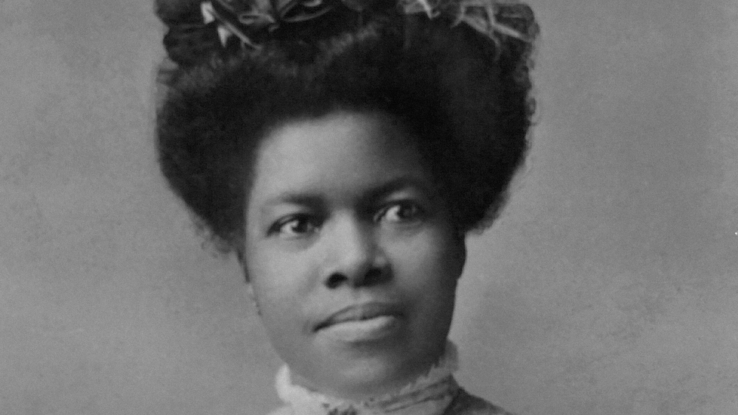
Some civil rights leaders of the time, such as Booker T. Washington, doubted Burroughs' ability to heighten money for the school. Because of donations from local blackness women and their families, however, Burroughs was yet successful, and the National Trade and Professional School for Women and Girls (NTPSG) in 1909 with the motto, "We specialize in the wholly impossible." At historic period 26, Burroughs was the first president.
The NTPSG was unusual in that it combined a classical instruction forth with vocational skills meant to assistance black women notice jobs in mod society. Blackness history was also a required class, a largely unprecedented move for the time. While the original school only consisted of a modest farmhouse, in 1928, information technology grew to include a larger building with 12 classrooms and boosted facilities. Burroughs died in 1961, just her efforts to provide education and opportunity regardless of race or gender paved the way for further efforts to secure civil rights.
Source: https://www.reference.com/history/influential-civil-rights-leaders-fba3aa8663d7f466?utm_content=params%3Ao%3D740005%26ad%3DdirN%26qo%3DserpIndex
0 Response to "Book Reviews of Sapiens a Brief History of Humankind"
Post a Comment